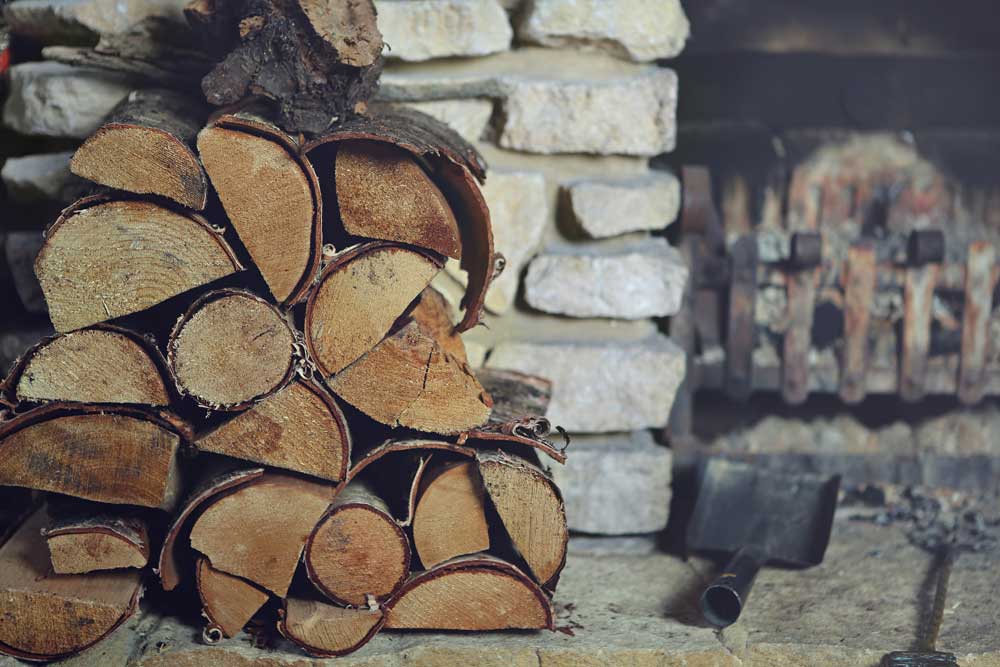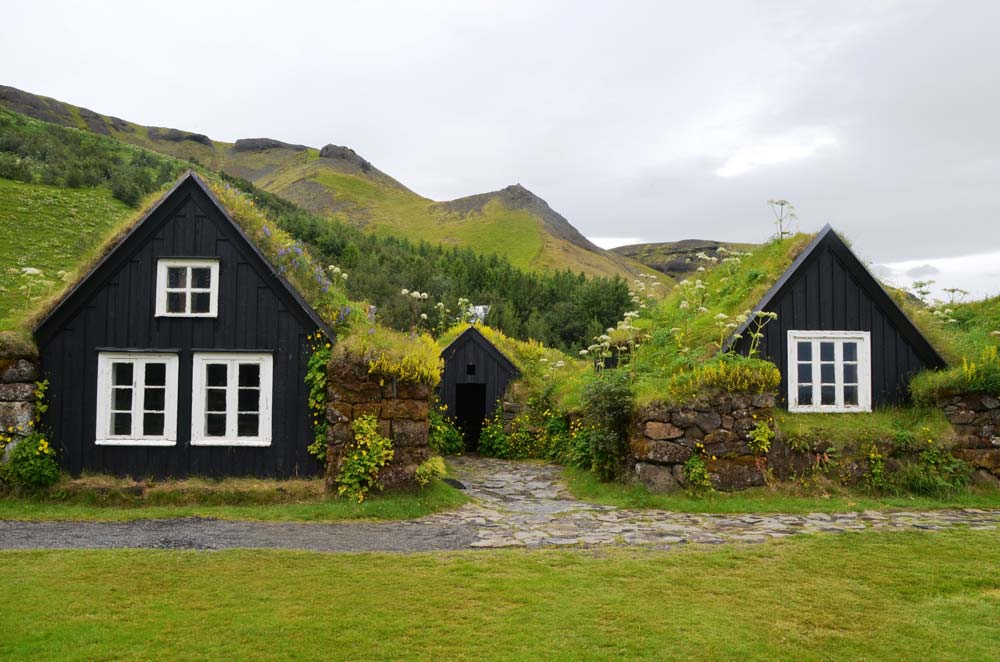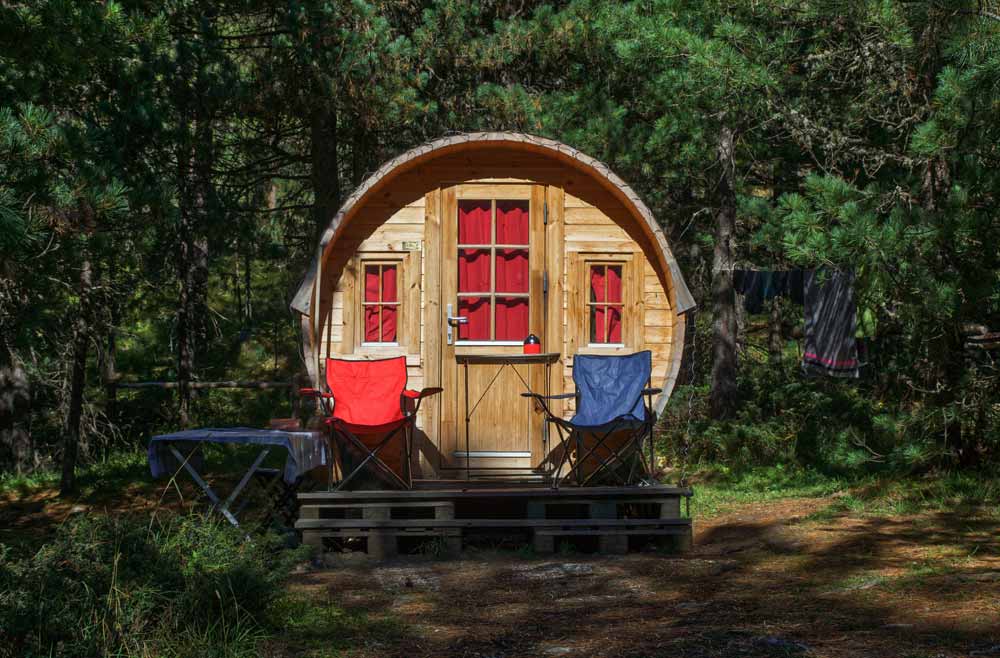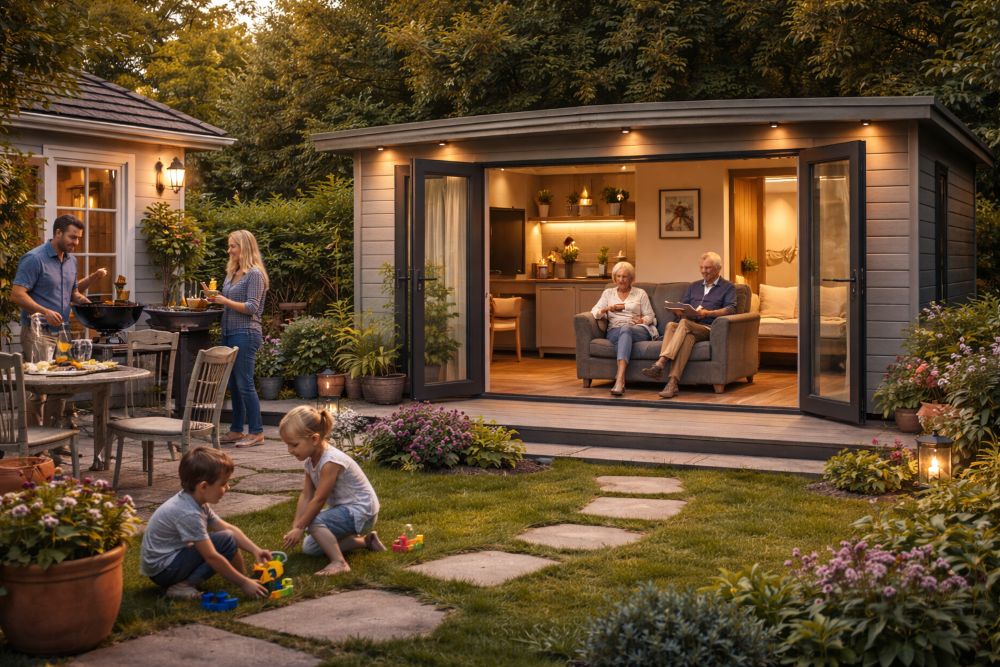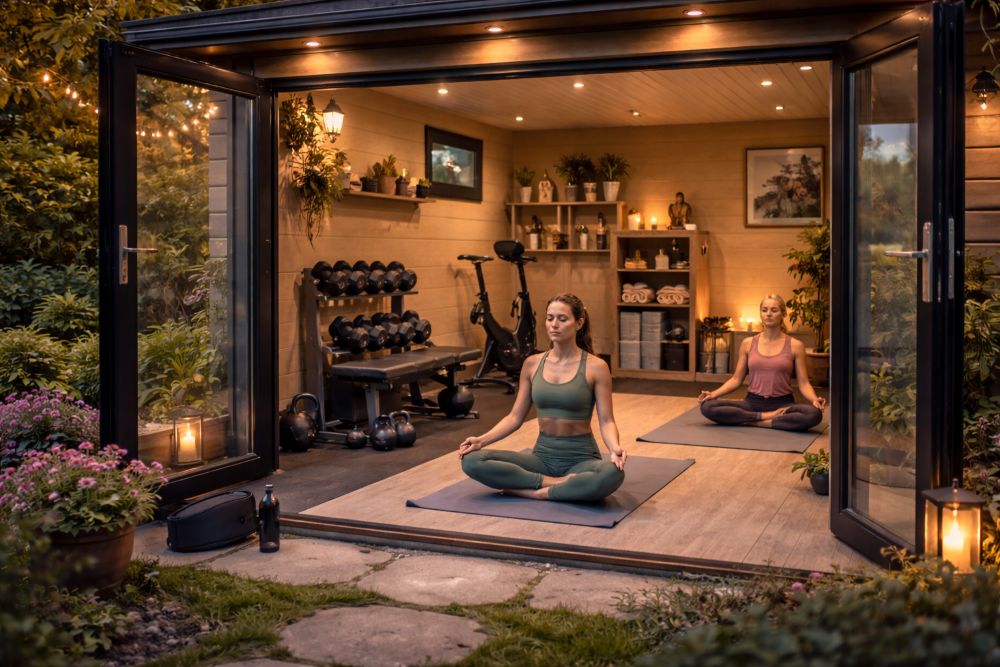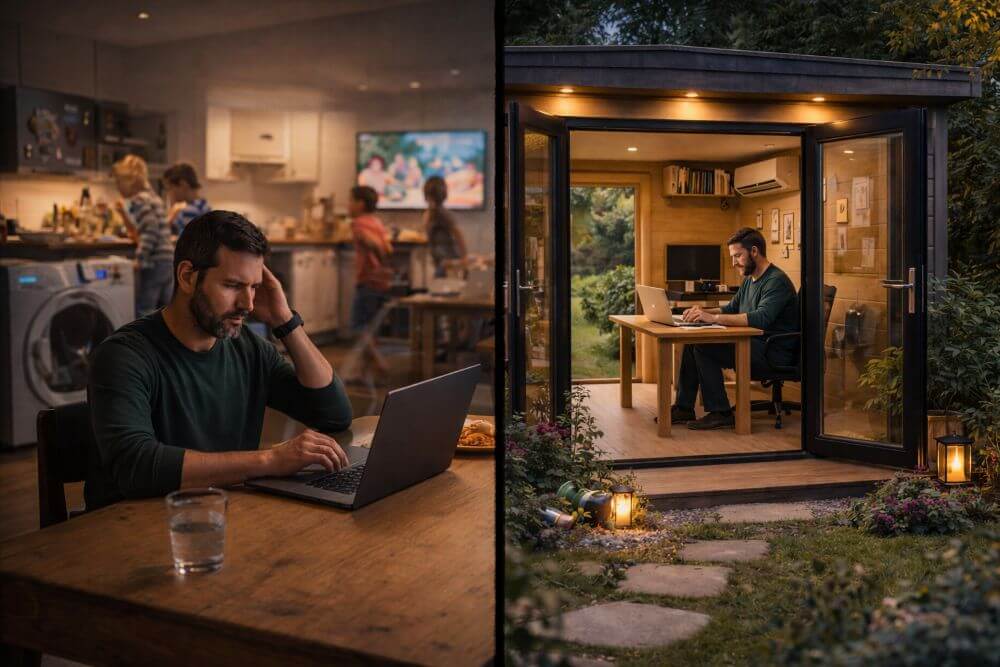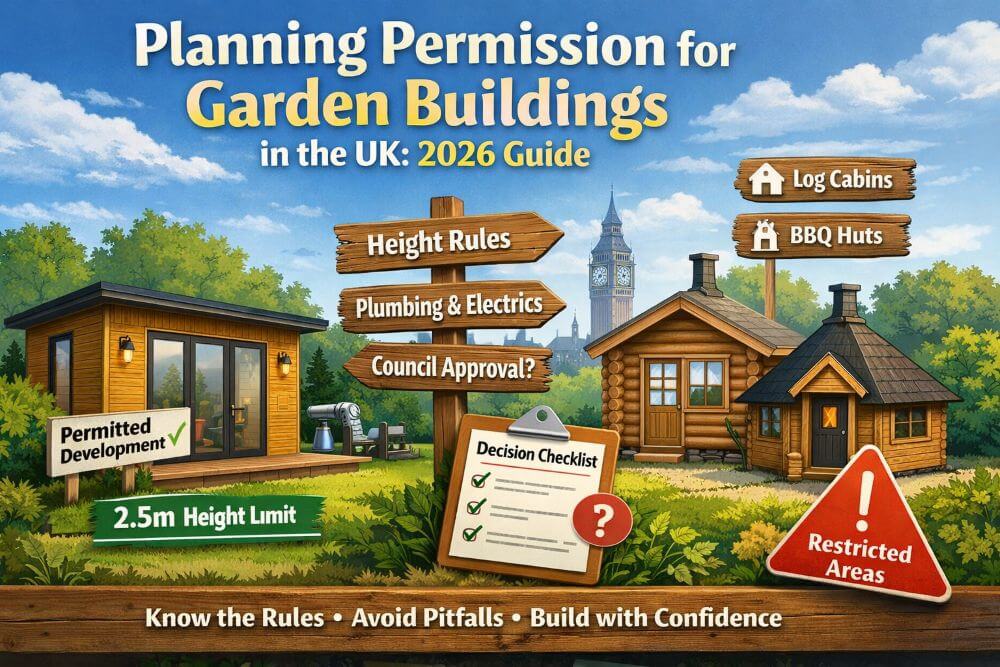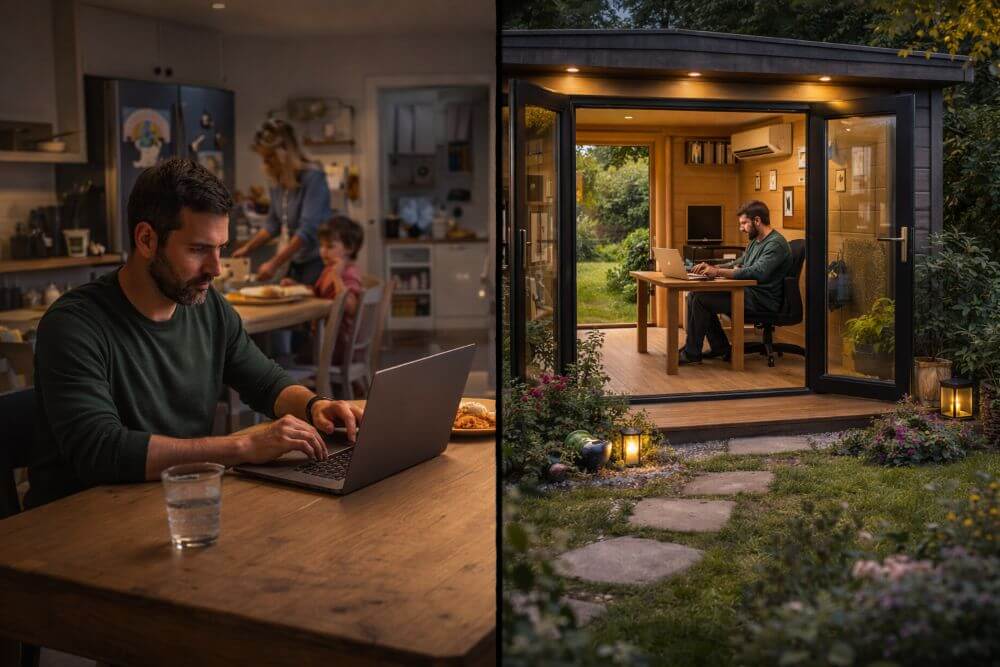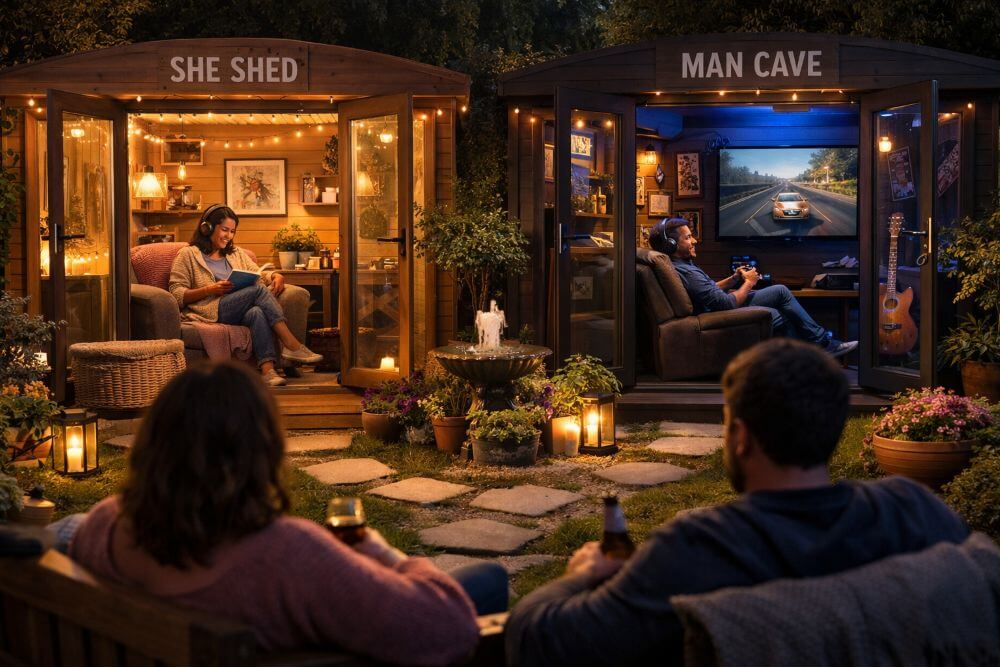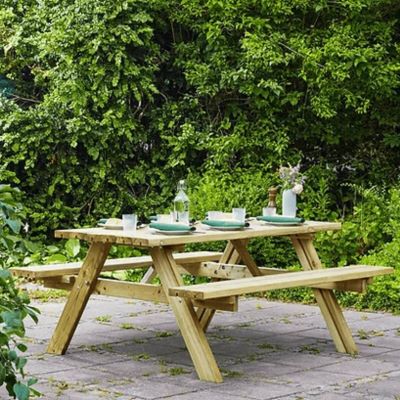It is important to understand the impact that log thickness has on bespoke log cabins. The planks used in the construction will determine the appearance, strength and insulation properties of the finished building.
As a general rule of thumb, the thicker the logs, the more stability the log cabins will have. 70mm thick logs can offer maximum protection from harsh weather and dampness, while more slender options, such as the 35mm planks, are better suited to warmer locations, since their thermal proprieties are lower.
Using planks made of thicker wood can drastically reduce energy and heating costs long term and are ideal for residential log cabins.
Overall, a heavier, thicker wood will ensure that a garden cabin room is stable and has little or no movement in severe weather conditions. These heavier logs also provide more security, as they are stronger and harder to damage or break into. This means they are well suited for out-buildings that contain expensive equipment, such as BBQ cabins or hot tub garden rooms.
Aesthetically, a thicker wood will also appear more pleasing on completed bespoke log cabins. Additional decorative touches may be added without compromising their stability, and log cabins made from heavier wood will easily accommodate additions like a porch. Overall, these cabins look stronger and have a more rustic appeal.
Talk to our experienced team at Logspan today, and request the advice of one of our staff members on a range of topics relating to outdoor huts and gazebos.
